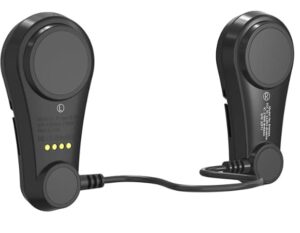Burnout is very common among people, whether they are working or parents. But when you are a healthcare worker, like a nurse, you often have really long and tiring hours, sometimes 24 hour shifts, and it can take a big toll on the body.
In order to prevent burnout, here are some important skills to use, and most of these apply to anyone, no matter their job. You matter. You deserve to take care of yourself.

Preventing Burnout in Healthcare: How to Stay Grounded in a Demanding Career
Working in healthcare is one of the most demanding jobs out there. Nurses and other healthcare workers often put in long hours, handle high-pressure situations, and care for people in their most vulnerable moments. While it can be deeply rewarding, the constant physical and emotional strain can take a serious toll over time.
This ongoing pressure can lead to burnout — a state of emotional, mental, and physical exhaustion caused by prolonged stress. If not addressed early, it can affect your job performance, relationships, and overall well-being. In this article, we’ll walk through the signs of burnout and simple, practical ways to avoid it, even with a packed schedule.
Recognizing the Signs of Burnout
Burnout doesn’t happen overnight. It builds gradually, often starting with subtle changes in mood, energy, or focus. Maybe you’re more irritable than usual or feel like you’re just going through the motions at work. These shifts are easy to ignore but often signal something deeper.
You might feel drained, even on days that aren’t particularly stressful. A sense of detachment from patients, coworkers, or the work itself can leave you feeling numb or disconnected.
Physical signs like headaches, sleep issues, fatigue, and frequent illness often follow. These are signs that your body is under sustained stress. Over time, they can seriously impact your health and job performance. That’s when it may be time to consider changes that support both your well-being and career growth.
For some nurses, taking time to reflect on long-term goals can be a valuable step toward managing burnout. Exploring options like an online MSN education program may offer a path toward roles that better align with your lifestyle and interests. Whether it’s moving into leadership, education, or case management, these opportunities can provide a new sense of purpose without requiring you to leave the nursing field.
Set Clear Boundaries Between Work and Personal Life
One of the hardest things for nurses and healthcare workers is leaving work at work. When your job involves caring for others, it’s easy to carry that stress home. But if you don’t set clear boundaries, the lines between work and personal time can blur, leading to even more exhaustion.
Start by protecting your off-hours. If you’re not on call, avoid checking work emails or responding to messages after your shift ends. It might feel like you’re being helpful, but this habit only chips away at your time to rest and recharge.
If you’re constantly being asked to take on extra shifts or tasks, practice saying “no” when you’re stretched too thin. It’s not selfish—it’s necessary. Respecting your own limits helps you stay well enough to do your job long-term.
Also, consider how you use your days off. Make it a point to do something that helps you reset — whether that’s getting outside, spending time with family, or just catching up on sleep. These moments help bring balance and prevent burnout from creeping in.
Prioritize Self-Care Without Guilt
Taking care of yourself shouldn’t feel like a luxury — it’s a basic need, especially when your job involves caring for others. Still, many nurses feel guilty for taking time out for themselves. That mindset needs to shift.
Self-care doesn’t have to be time-consuming or expensive. It could be as simple as eating a real meal instead of skipping lunch or making time for a short walk during your break. Small daily actions can go a long way in keeping your body and mind healthy.
Hydration, regular meals, and movement are the basics — and they matter more than you think. Also, carving out even 10–15 minutes a day to do something you enjoy can help you feel more in control of your time and energy.
Try to schedule self-care the same way you schedule work shifts or appointments. When you make it a priority, it becomes part of your routine, not an afterthought. And remember: taking care of yourself doesn’t take away from your ability to care for others — it strengthens it.
Incorporate Mindfulness and Stress-Reduction Techniques
Mindfulness doesn’t require a lot of time or special skills. It’s simply about being present and aware of how you’re feeling in the moment. Taking just a few minutes during your day to pause and breathe can help you reset and manage stress better.
You can try simple breathing exercises, meditation, or even light stretching. There are apps that offer guided sessions that take less than 10 minutes — perfect for busy schedules. These small habits can help improve focus and reduce feelings of anxiety or tension.
If you’re on a tight schedule, look for “pause points” throughout your day — like during shift changes, in the break room, or while washing your hands. Just a few calm breaths or a moment of silence can help center you.
Another helpful habit is to do a quick mental check-in with yourself. Ask, “How am I feeling right now?” If the answer is stressed, tense, or overwhelmed, try to take a short break or slow down when possible.
Reflect and Reconnect with Your Purpose
When you’re burnt out, it’s easy to forget why you chose a career in healthcare in the first place. But reconnecting with that original motivation can help bring back a sense of purpose and meaning to your work.
Think about the moments that have made you feel proud — a patient who thanked you, a coworker you supported, or a time you stayed calm during a tough situation. These small wins matter and often mean more than we realize.
You might find it helpful to keep a simple journal. Write down one positive thing that happened during your shift, or a patient interaction that reminded you why you do what you do. These notes can serve as a reminder that your work is valuable — even on the hard days.
It’s also okay to think about where you want your career to go. Whether that’s moving into a new specialty, taking on a leadership role, or focusing more on education, thinking ahead can help you stay motivated and feel more in control of your path.
You Deserve to Thrive
Burnout is a real challenge for nurses and healthcare professionals, but it doesn’t have to be your reality. By learning to spot the early signs, setting healthy boundaries, practicing self-care, and leaning on your support system, you can protect your health and stay strong in your role.
Remember, taking care of yourself isn’t selfish — it’s necessary. The more balanced and supported you feel, the better you can care for others. You don’t have to do it all at once. Start small, stay consistent, and know that you’re not alone in this journey.
Your well-being matters — not just for your job, but for your life outside of it too.





